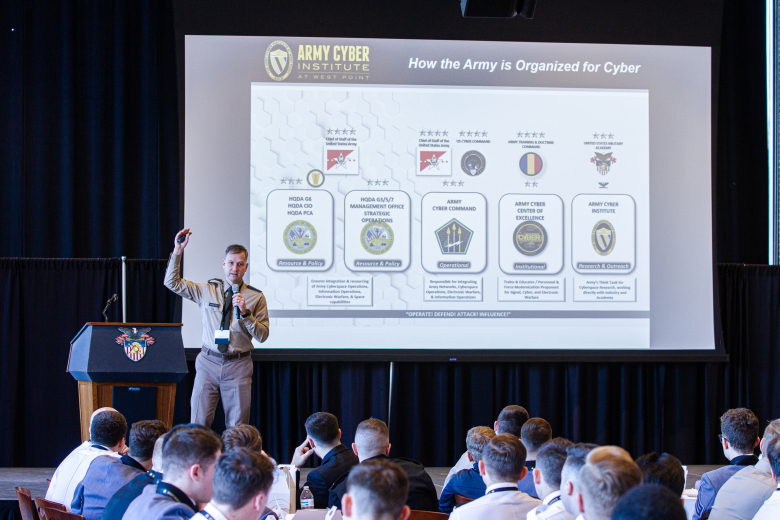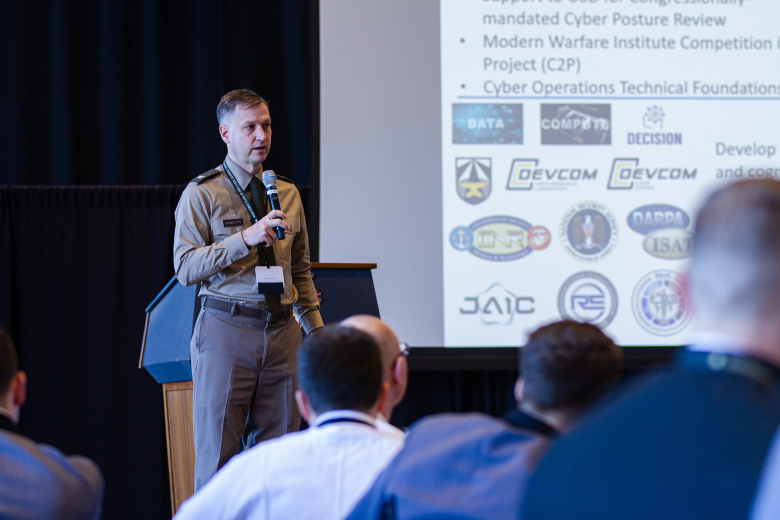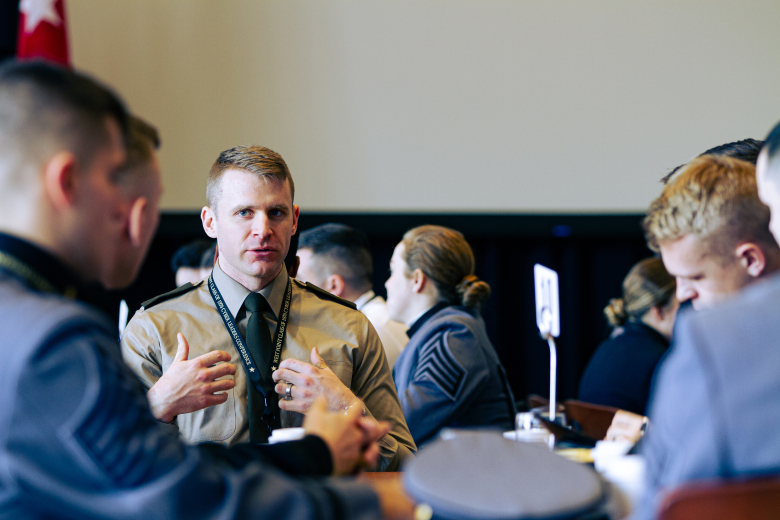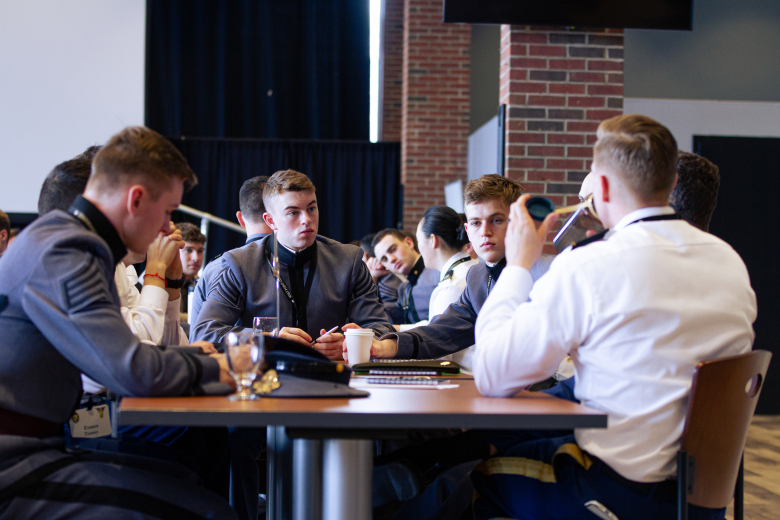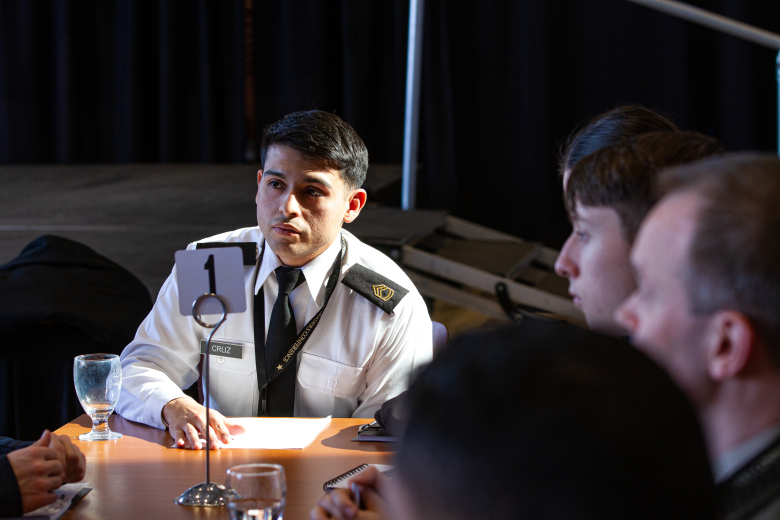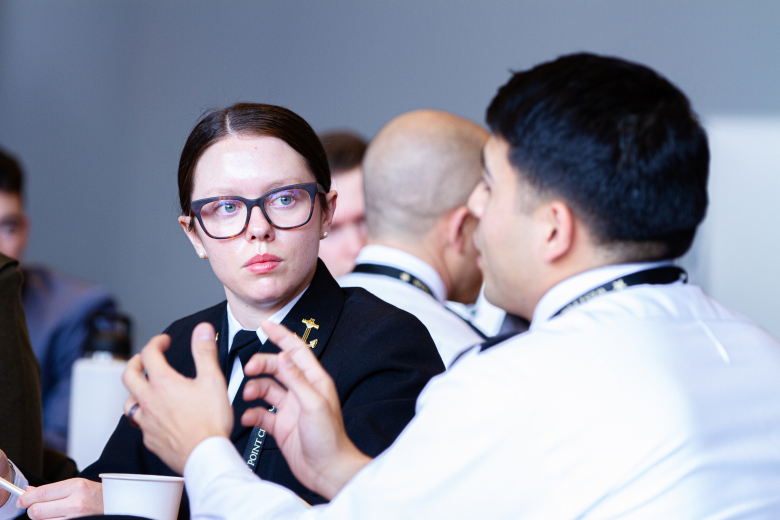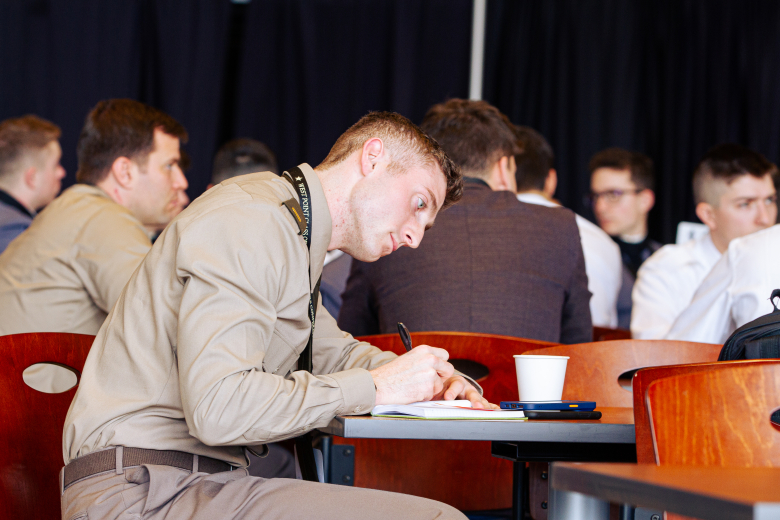Around five years ago, cadets toured through a cyber operations center where Chief Warrant Officer 3, Justin Helphenstine, had worked. After completing the tour, he asked the cadets if they were interested in joining the cyber branch.
“Their responses were, ‘I’m interested in going armor branch actually,’ or ‘I’m interested in going Explosive Ordnance Disposal branch.’ And I realized at that moment, I am not sure that our story is getting out there,” Helphenstine said.
Since then, Helphenstine has visited the U.S. Military Academy to inform cadets, interested in cyber, about how Army leaders strategize and battle their way through obstacles presented in the cyber domain.
Helphenstine, the current tactical director at the Cyber National Mission Forces, and other subject matter experts now lent their leadership expertise to cadets, midshipmen and other service academy members during the Cyber Leadership Conference (CLC) between Jan. 30-Feb. 1 at Eisenhower Hall.
Sponsored by the USMA Class of 1970, the CLC offers cyber officers a productive annual leadership development experience. During the conference, the event brought together cadets interested in the cyber branch with experienced Army cyber professionals.
Cadets were put into small groups to engage with distinguished senior leaders from the military, government and private sectors. They also developed inter-organizational relationships with leaders of the cyber branch.
“I want to come from the operational force and say, ‘What can I offer you?’ What questions of yours can I answer, but also, how do I shape you in such a way that you're not just thinking about getting hands on a keyboard and plugging away but also instill in you that curiosity about how do I effectively manage these teams and resources that I’m going to be given?” Helphenstine said.
For Class of 2023 Cadet Skye Williams, the event exceeded her expectations. She added that engaging and learning from influential Army professionals across the cyber branch was a wonderful experience.
“It was a great opportunity to personally engage with the commanding generals and guest speakers to ask them questions and gain a holistic understanding of our mission and intent as cyber officers,” Williams said. “I gleaned many successful strategies and tools that will prepare cyber officers to lead in future operational environments, and, for that, I am grateful.”
According to Brig. Gen. Brian D. Vile, commandant of the U.S. Army Cyber School, the cadets and midshipmen who participated in the event chose the cyber branch. However, they may have a limited understanding of what it's like operating within the branch.
“The cyber branch dominates the electromagnetic spectrum: Wi-Fi, wireless communications, radio frequencies and satellite communications,” Vile explained. “First, we had to expose them to the entirety of what the branch does. Then, we broke it down and said, ‘Here are the positions you could serve, and this is how the force is structured.’”
While being technically knowledgeable in cyber aids in an officer's success, efficient leadership qualities can enhance a team's ability to complete a mission.
"The fact that it’s a leadership conference and we're stressing that theme of leadership, that should help us avoid a cohort of junior officers that emerges thinking, ‘I’m here to be technical, and that's all I'm doing,’” Helphenstine said.
He added cyber officers will work with many technical experts whose skills are top-of-the-line, and he or she will likely not be the most technically sound expert on the team.
“ ... But what you will bring is an awareness of how to lead the team and being able to advocate for them to understand and articulate, ‘OK, here’s how I can use my team to meet the commander’s intent,’” Helphenstine said.
With computer security, cybersecurity and information technology security rapidly evolving, the Army and other military branches require talented minds who are ready to solve unique technological problems.
“I was an infantry guy. I could lead an infantry platoon today, and I could do it quite well, and it's been 26 years since I led an infantry platoon,” Vile concluded. “In cyber, the domain changes so fast -- technology changes so fast that we rely on our junior Soldiers, warrant officers and our future lieutenants to be the experts of the domain. So, we listen very closely. The electromagnetic spectrum portion of our mission changes all the time. And so, whether they know it or not, they have a significant vote in the direction of the force.”
